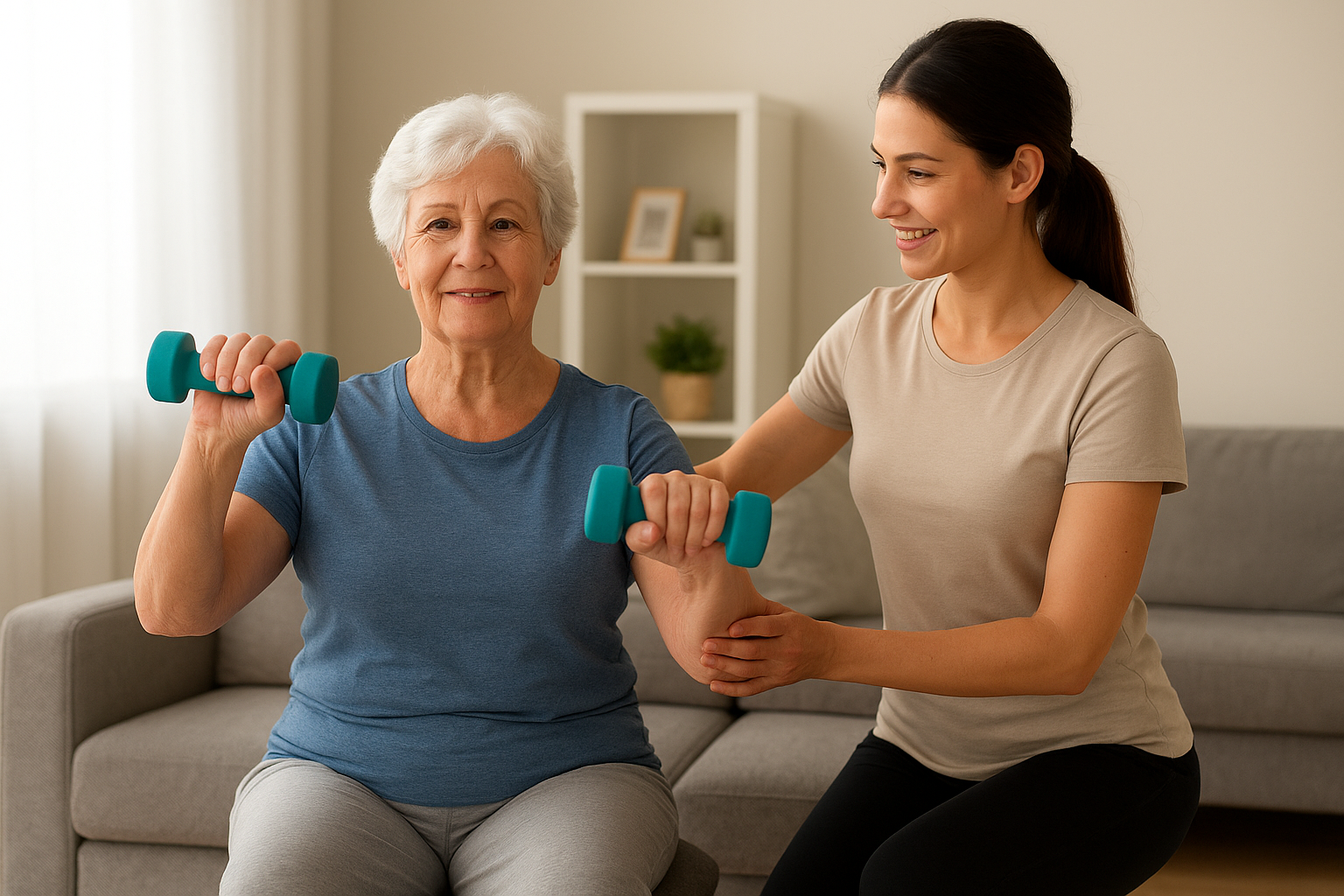Can Exercise Physiology Help Older Adults Stay Out of Aged Care?
As families watch their loved ones grow older, one of the biggest questions is: how can we keep Mum or Dad living independently at home for as long as possible?
Often, the tipping point into residential aged care isn’t a sudden illness, but rather a gradual decline — weaker legs, slower walking, a fall or two, or the loss of confidence to manage everyday activities safely. The good news is that many of these issues are not an inevitable part of ageing. With the right support, older adults can maintain strength, balance, and mobility well into later life. This is where exercise physiology makes a huge difference.
Why physical activity is essential in later years
Getting older naturally brings changes in muscle strength, joint mobility, balance, and cardiovascular fitness. These changes increase the risk of falls, hospital visits, and ultimately, loss of independence.
Targeted, structured exercise can help reverse some of this decline. Research consistently shows that strength training, balance exercises, and gentle aerobic activity can:
Rebuild muscle mass and power
Reduce the risk of falls and fractures
Improve walking speed and endurance
Support better mood and cognitive function
Increase confidence in daily activities
When older adults feel stronger and more capable, they’re less likely to rely on others for basic tasks — which means they can continue living in their own home longer.
According to The Australian Institute of Health and Welfare (AIHW), one in three adults over 65 experiences a fall each year — yet regular, targeted exercise can reduce that risk by up to 40%.
You Can Also Read : Why Strength Training Is Non-Negotiable for Women in Midlife (and Beyond)
The role of an exercise physiologist
Unlike general fitness programs, exercise physiology is tailored to the individual. An accredited exercise physiologist (EP) considers each person’s medical history, mobility, pain levels, and goals before designing a program. This ensures the exercises are safe, achievable, and effective.
Some of the key ways EPs support older adults include:
Functional strength training: building the muscle needed for daily activities like getting out of a chair, climbing steps, or carrying groceries.
Balance and stability work: targeted training to reduce falls and improve confidence walking around the home or community.
Cardiovascular conditioning: improving heart and lung health to boost energy and stamina.
Rehabilitation after illness or injury: guiding recovery from hospital stays or health setbacks.
The real value of an exercise physiologist is not just prescribing exercises but helping older adults stick with them, progress safely, and celebrate improvements along the way.
Can exercise physiology really prevent aged-care admission?
While nothing can guarantee someone will never need residential care, there’s strong evidence that regular, structured exercise delays the decline that often leads to it. In many cases, older adults who follow a supervised program experience fewer falls, greater independence with daily tasks, and reduced hospital admissions.
Of course, exercise is only one piece of the puzzle. Factors such as social connection, home safety, medical care, and family support also play important roles. But when combined, exercise physiology becomes a powerful tool in extending independent living.
“Exercise improves not only physical strength but also cognitive function and mood, lowering risk of depression and social withdrawal in ageing populations.” — See “Physical Activity and Cognitive Function in Older Adults” for cognitive benefits.
You Can Also Read : Top 5 Exercises to Improve Mobility & Prevent Falls in Seniors
Taking the first step
Staying active is one of the most powerful ways older adults can maintain independence, strength, and confidence. With the right guidance, exercise physiology helps prevent falls, improve mobility, and boost overall wellbeing — making it possible to live safely and happily at home for longer.
At Movement Therapy EP, our accredited Exercise Physiologists in Sydney specialise in tailored programs for seniors, focusing on strength, balance, and confidence. Whether you’re supporting a loved one or improving your own mobility, we’re here to help every step of the way.
Book an Exercise Physiology assessment in Sydney today with Movement Therapy EP and take the first step toward lasting independence and healthier ageing.
FAQs
-
Yes, it’s never too late. Even light strength or balance training provides measurable benefits in stability and independence.
-
Absolutely — under supervision. Accredited exercise physiologists design low-impact, medically safe programs tailored to your health status.
-
Most benefit from 2–3 strength sessions and light daily movement, such as walking or balance training.


